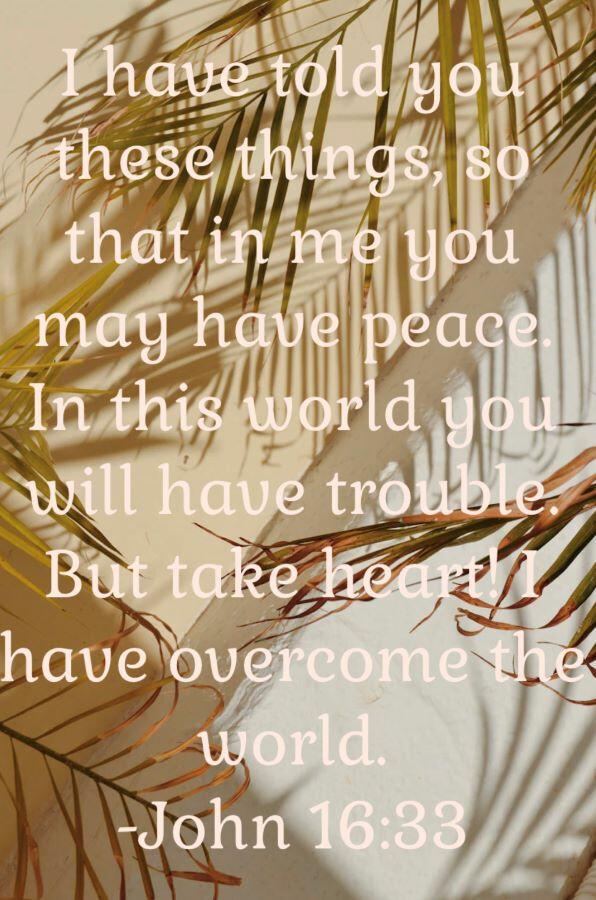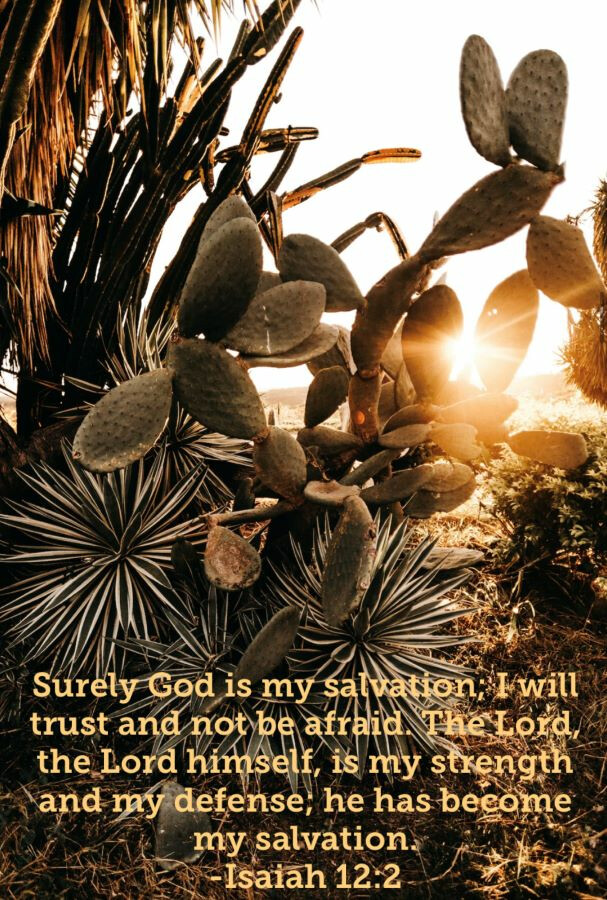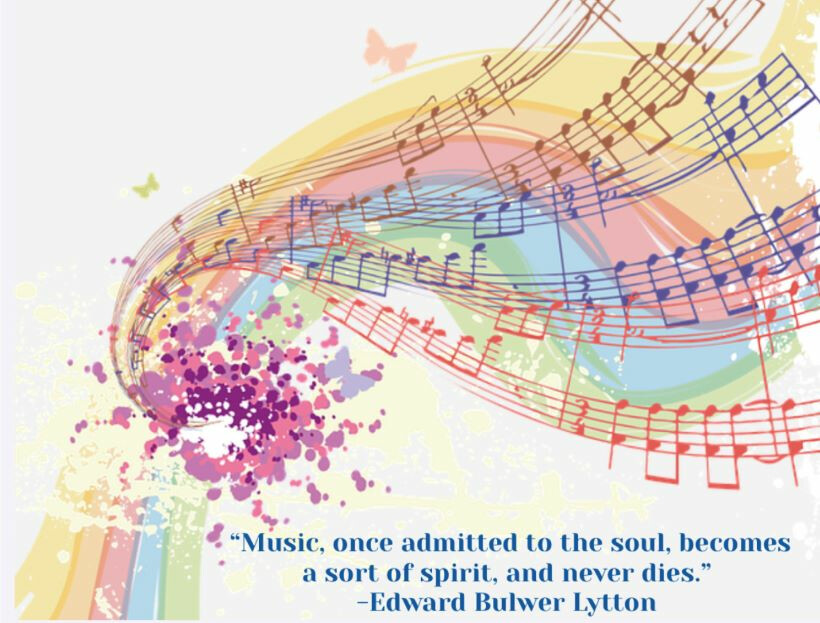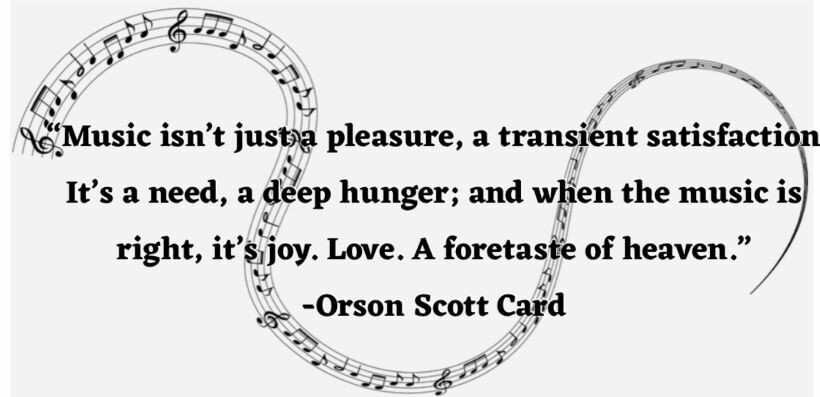What the Bible Says About Discouragement & How to Discourage Discouragement From Sneaking Into Your Life
What is Discouragement?
Discouragement is something we will all struggle with at some point in our lives. It is an overbearing feeling we get when we lose the will and enthusiasm to continue doing whatever it is that we are working on. Discouragement comes in various shapes and sizes: Weariness, Disappointment, Hopelessness, Aggravation, Fear, Distress, Defeat, Failure, Frustration, Disheartened, and so much more.
Examples of Discouragement in the Bible
If we aren’t careful, discouragement will sneak up on us and hold us in its grasp. Let’s take a look at a few examples of discouragement within the Bible.
Elijah
In the Book of 1 Kings chapter 19, Prophet Elijah ran away, fearing for his life when he was threatened by Jezebel.
1 Kings 19: 4-8 says:
while he himself went a day’s journey into the wilderness. He came to a broom bush, sat down under it and prayed that he might die. “I have had enough, LORD,” he said. “Take my life; I am no better than my ancestors.”
Then he lay down under the bush and fell asleep. All at once an angel touched him and said, “Get up and eat.”
He looked around, and there by his head was some bread baked over hot coals, and a jar of water. He ate and drank and then lay down again.
The angel of the LORD came back a second time and touched him and said, “Get up and eat, for the journey is too much for you.”
So he got up and ate and drank. Strengthened by that food, he traveled forty days and forty nights until he reached Horeb, the mountain of God.
There he went into a cave and spent the night.
Elijah was clearly feeling discouraged. He felt as though he had let down God; failed Him. The disappointment Elijah felt was so much so that he prayed to God, asking Him to take his life. In the cave, God came to Elijah and asked him why was there. To which Elijah replied:
He replied, “I have been very zealous for the LORD God Almighty. The Israelites have rejected your covenant, torn down your altars, and put your prophets to death with the sword. I am the only one left, and now they are trying to kill me too.”
-1 Kings 19:10
God commanded Elijah to leave the cave, telling Elijah that He would show Himself to him. Elijah heard a gentle whisper and covered his face while standing at the mouth of the cave. God spoke to Elijah, telling him to return to Damascus. The Lord instructed Elijah to appoint different leaders throughout the land. With a renewed sense of purpose, and by his faith in the Almighty, Elijah listened, and his discouragement melted away.
Nehemiah
After the Persian Empire conquered the Babylonians, the Jews were allowed back to Jerusalem. The temple was rebuilt, but the walls of Jerusalem remained destroyed, leaving Jerusalem vulnerable to attack. Nehemiah, who was cupbearer to the King of Persia, caught wind of the condition of the city walls and went to Jerusalem. Once he saw the devastation, Nehemiah implored the Jews to rebuild the wall.
Then I said to them, “You see the trouble we are in: Jerusalem lies in ruins, and its gates have been burned with fire. Come, let us rebuild the wall of Jerusalem, and we will no longer be in disgrace.” I also told them about the gracious hand of my God on me and what the king had said to me.
They replied, “Let us start rebuilding.” So they began this good work.
-Nehemiah 2: 17-18
It seemed as though everyone agreed to rebuild the walls. However, Nehemiah was met with adversity when Sanballat the Horonite, Tobiah the Ammonite official, and Geshem the Arab mocked and teased him.
But Nehemiah responded, relying on his faith in God.
I answered them by saying, “The God of heaven will give us success. We his servants will start rebuilding, but as for you, you have no share in Jerusalem or any claim or historic right to it.”
-Nehemiah 2:20
The walls of the city started to be rebuilt; progress was made.
In spite of that, we see in Nehemiah 4:1-3 that Sanballat and Tobiah came back, and they were up to no good:
When Sanballat heard that we were rebuilding the wall, he became angry and was greatly incensed. He ridiculed the Jews, and in the presence of his associates and the army of Samaria, he said, “What are those feeble Jews doing? Will they restore their wall? Will they offer sacrifices? Will they finish in a day? Can they bring the stones back to life from those heaps of rubble—burned as they are?” Tobiah the Ammonite, who was at his side, said, “What they are building—even a fox climbing up on it would break down their wall of stones!”
But again, Nehemiah turned to God. Hear us, our God, for we are despised. Turn their insults back on their own heads. Give them over as plunder in a land of captivity. Do not cover up their guilt or blot out their sins from your sight, for they have thrown insults in the face of the builders. So we rebuilt the wall till all of it reached half its height, for the people worked with all their heart.
-Nehemiah 4:4-6
As word spread about the walls of Jerusalem being repaired, people were angered and started to plot against them. Nehemiah prayed for protection, but the threats continued. Those rebuilding the walls became fearful, weary, and overwhelmed. There was still so much work to be done in order to get the wall finished, and the pressure was starting to become too much. The discouragement was beginning to take hold.
Nehemiah continued to pray, his faith never wavered and came up with a plan. He instructed the builders to spread out, so every section of the wall would be unsusceptible to an attack. He had the builders work with one hand and use the other to bear a weapon.
The work on the wall continued, as did the opposition from others.
They were all trying to frighten us, thinking, “Their hands will get too weak for the work, and it will not be completed.” But I prayed, “Now strengthen my hands.”
-Nehemiah 6:9
Again, Nehemiah turned toward God. Again, Nehemiah encouraged the builders to continue.
The wall was completed in 52 days.
Jeremiah
Jeremiah started his ministry fairly early in his life. He was devoted to the Lord and eager to spread His word. Jeremiah’s ministry took place in a very wicked time; a period when people did not want to accept God. God instructed Jeremiah to preach and caution others about their evil-doing; warning them of their demise if they continued to turn away from God. Jeremiah experienced much torment and suffering throughout his service. He was ridiculed, and the jeering became worse as God chose to forgive instead of condemning. Because of this, Jeremiah felt as though God had betrayed him.
You are always righteous, Lord, when I bring a case before you. Yet I would speak with you about your justice: Why does the way of the wicked prosper? Why do all the faithless live at ease? You have planted them, and they have taken root; they grow and bear fruit. You are always on their lips but far from their hearts. Yet you know me, Lord; you see me and test my thoughts about you. Drag them off like sheep to be butchered! Set them apart for the day of slaughter! How long will the land lie parched and the grass in every field be withered? Because those who live in it are wicked, the animals and birds have perished. Moreover, the people are saying, “He will not see what happens to us.”
-Jeremiah 12:1-4
Jeremiah began to feel discouraged. He did everything God asked of him, yet it seemed as though he couldn’t catch a break.
We see more of his pleas to God in Jeremiah 15: 15-18:
Lord, you understand; remember me and care for me. Avenge me on my persecutors. You are long-suffering—do not take me away; think of how I suffer reproach for your sake. When your words came, I ate them; they were my joy and my heart’s delight, for I bear your name, Lord God Almighty. I never sat in the company of revelers, never made merry with them; I sat alone because your hand was on me and you had filled me with indignation. Why is my pain unending and my wound grievous and incurable? You are to me like a deceptive brook, like a spring that fails.
The distress and aggravation Jeremiah feels is overwhelming in Jeremiah 18:19- 23:
Listen to me, Lord; hear what my accusers are saying! Should good be repaid with evil?
Yet they have dug a pit for me. Remember that I stood before you and spoke in their behalf to turn your wrath away from them. So give their children over to famine; hand them over to the power of the sword. Let their wives be made childless and widows; let their men be put to death, their young men slain by the sword in battle. Let a cry be heard from their houses when you suddenly bring invaders against them, for they have dug a pit to capture me and have hidden snares for my feet. But you, Lord, know all their plots to kill me. Do not forgive their crimes or blot out their sins from your sight. Let them be overthrown before you; deal with them in the time of your anger.
Perhaps the most effective display of discouragement is seen in Jeremiah 20:7-18:
You deceived me, Lord, and I was deceived; you overpowered me and prevailed. I am ridiculed all day long; everyone mocks me. Whenever I speak, I cry out proclaiming violence and destruction. So the word of the Lord has brought me insult and reproach all day long. But if I say, “I will not mention his word or speak anymore in his name,” his word is in my heart like a fire, a fire shut up in my bones. I am weary of holding it in; indeed, I cannot. I hear many whispering, “Terror on every side! Denounce him! Let’s denounce him!” All my friends are waiting for me to slip, saying, “Perhaps he will be deceived; then we will prevail over him and take our revenge on him.” But the Lord is with me like a mighty warrior; so my persecutors will stumble and not prevail. They will fail and be thoroughly disgraced; their dishonor will never be forgotten.Lord Almighty, you who examine the righteous and probe the heart and mind, let me see your vengeance on them, for to you I have committed my cause. Sing to the Lord! Give praise to the Lord! He rescues the life of the needy from the hands of the wicked. Cursed be the day I was born! May the day my mother bore me not be blessed! Cursed be the man who brought my father the news, who made him very glad, saying, “A child is born to you—a son!” May that man be like the towns the Lord overthrew without pity. May he hear wailing in the morning, a battle cry at noon. For he did not kill me in the womb, with my mother as my grave, her womb enlarged forever. Why did I ever come out of the womb to see trouble and sorrow and to end my days in shame?
Jonah
God instructed Jonah to preach His word in Nineveh; warn the people of Nineveh of their evil ways. But Jonah didn’t listen. Instead, he tried to flee to Tarshish by boat. Angered, the Lord sent a great storm, which threatened to rip apart the ship. Frantic, the sailors confronted Jonah and asked him what he had done to bring the storm upon them. The sailors asked Jonah how to calm the storm.
“Pick me up and throw me into the sea,” he replied, “and it will become calm. I know that it is my fault that this great storm has come upon you.”
-Jonah 1:12
But the sailors refused, as they did not want to kill an innocent man. They decided to try and sail back to shore. But the sea continued to grow more ferocious, and the men pleaded to God, asking Him to not hold them accountable as they threw Jonah overboard.
Jonah was swallowed by a giant fish. He stayed in the belly of the fish for 3 days and 3 nights. Jonah cried out in prayer and the fish expelled him from its body. Again, God instructed Jonah to go to Nineveh. This time, Jonah went.
Jonah began his journey with a skip in his step, looking forward to the prospect of the Lord befalling the wicked city.
Jonah began by going a day’s journey into the city, proclaiming, “Forty more days and Nineveh will be overthrown.”
-Jonah 3:4
Much to Jonah’s disappointment, that didn’t happen. The people of Nineveh listened and obeyed. They turned from their wicked ways, opting instead to worship God. So God did not destroy them.
But to Jonah, this seemed very wrong, and he became angry. He prayed to the Lord, “Isn’t this what I said, Lord, when I was still at home? That is what I tried to forestall by fleeing to Tarshish. I knew that you are a gracious and compassionate God, slow to anger and abounding in love, a God who relents from sending calamity. Now, Lord, take away my life, for it is better for me to die than to live.”
-Jonah 4:1-3
Jonah was angry with God for His compassion. Jonah wanted the people of Nineveh to suffer the consequences of their evil choices and wrongdoings. Jonah had fled to Tarshish because he knew the Lord would forgive the people of their sins if they repented.
Two more times in chapter 4, Jonah insists he would be better off dead. Jonah feels discouraged, but it isn’t at God and His compassion. It is because Jonah is able to recognize his own faulty thought process on the situation. Jonah had run to Tarshish out of fear, and ultimately his fears were confirmed. It is here when Jonah had to really look in the mirror and face the truth.
Ways to Cure Discouragement
- First and foremost- Pray!
- Encourage someone else
- Talk with someone about how you are feeling
- Develop self-awareness and acknowledge the feeling as soon as it begins to start
- Take a break
- Don’t compare yourself to others
- Break whatever you’re doing into smaller, more manageable steps
- Manage your expectations
- Go for a walk
- Listen to uplifting music
- Call a friend
- Read your Bible
Speaking of the Bible…
Here is a list of some Bible Verses to help you navigate your way out of the icky feeling of discouragement:

I will lead the blind by ways they have not known, along unfamiliar paths I will guide them; I will turn the darkness into light before them and make the rough places smooth. These are the things I will do; I will not forsake them.
-Isaiah 42:16

We are hard pressed on every side, but not crushed; perplexed, but not in despair; persecuted, but not abandoned; struck down, but not destroyed.
-2 Corinthians 4:8-9

In all this you greatly rejoice, though now for a little while you may have had to suffer grief in all kinds of trials. These have come so that the proven genuineness of your faith—of greater worth than gold, which perishes even though refined by fire—may result in praise, glory and honor when Jesus Christ is revealed. Though you have not seen him, you love him; and even though you do not see him now, you believe in him and are filled with an inexpressible and glorious joy, for you are receiving the end result of your faith, the salvation of your souls.
-1 Peter 1:6-9

On That Note
Feeling discouraged is a natural and normal feeling. Even though you may be tempted to just give up while in the throes of discouragement, cling to God. God will help you and support you through your trials. He is always by your side, all you have to do is call out to Him and ask for help.
-Torrance Church of Christ
















